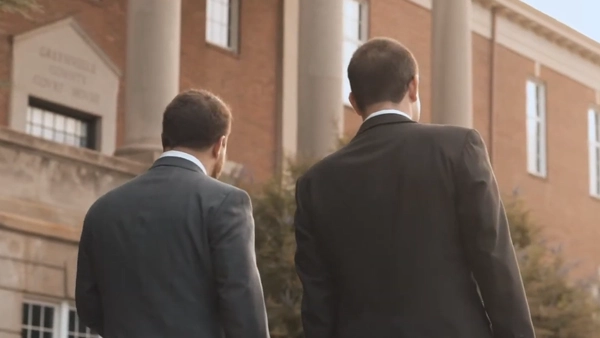Any time you are suspected of, investigated for, or arrested for a crime, you’re going to want a skilled criminal defense attorney on your side. There is no way for you to fully understand all of the ins and outs of the criminal justice system if you are not well educated in the laws and the processes. Your attorney will therefore be in the best position to advise you with their own understanding and experience of the law. This is especially true when it comes to questions of whether your case is a state criminal case or a federal case. This distinction can make things more complicated, and the criminal defense attorneys at in Greenville, South Carolina can help you to better understand the process and get the best outcome.
What Is the Difference Between State and Federal Criminal Charges?
The difference between state criminal charges and federal criminal charges is all about who has jurisdiction in the case. The entity with jurisdiction is going to the one with legal authority to pursue the case and decide the outcome of the case. This may be the state government, the federal government, multiple state governments, etc. It all depends on the complexity of the crime and case, as well as where the crime occurred. If your criminal charges are a federal matter, then you will be subject to federal law, rather than state law. However, it is possible to face federal criminal charges and state criminal charges at the same time.
What Makes Your Case Fall Under Federal Jurisdiction?
When you are accused of criminal activity on federal land, against federal officer, or when the criminal act is against federal laws, then your case can fall under federal jurisdiction. When this happens, the case against you will be presented in a federal court of law. Some examples include crimes that occur on Native American land or military bases and cases that involve multiple state crimes, such as drug trafficking, kidnapping, fraud, or a crime spree. Other examples involve those cases that involve customs, international crimes, and immigration.
When Your Charges Involve a South Carolina Case and Also a Federal Case
There is a concept known as concurrent jurisdiction, in which you can be tried under South Carolina law and also under federal law. You can have your case presented in both a federal court and a state court. If state laws are broken, but federal laws and circumstances are also involved, then concurrent jurisdiction may apply. Many people don’t realize that this can happen because they know that double jeopardy rules prevent a person from being charged with the same crime more than once. However, when it comes to concurrent jurisdiction, even if the same crime is involved, it is considered to be two separate crimes, because two separate laws (a federal law and also a state law) have been violated, even if it was the same event.
For this reason, you might be acquitted of all charges in one court, and yet convicted of all charges in another. The federal prosecutor could not bring the same case against you, twice; and the state prosecutor also could not charge you from the same crime twice. Yet, each of those entities may do so once with out violating the Constitutional prohibition against double jeopardy, because the same crime may be considered to be an offense against two separate but similar laws. The outcome of one case will not affect the other.
Is Your Criminal Case Going to Go to a Grand Jury Decision?
If you are facing federal criminal charges, there is a possibility that your case might end up going to a grand jury decision. This is something that is likely to occur when the crime that you are accused of is very serious, such as a capital murder trial. A grand jury includes 16 – 23 people who are researched and carefully selected by both sides of the case. The jury selection will not include a judge, and your own attorney might not be there. This is where the prosecutor will have the opportunity to express the various laws that are relevant to your criminal charges within the presence of grand jury clerks and officers.
This is different from an ordinary trial because the grand jury will be able to evaluate evidence that may not be admissible in trail. Witness are also able to speak openly about what they know with the understanding that their testimony will be confidential. The jury members are not allowed to discuss the case with anyone outside of the process. Further, if you are not ultimately charged with the crime, then none of the information presented to the grand jury should have any impact on your future life, as it is all kept confidential.
The grand jury will come to a decision about whether or not you ought to be charged with the given crime, and their decision doesn’t need to be unanimous. As long as there is a 2/3 or 3/4 majority decision, then that is the decision that will be acted upon. If it is decided that you should be charged with the crime under federal jurisdiction, then your case is going to go to trial, and the trial will be scheduled soon thereafter. If the grand jury comes to the conclusion than you should not be charged with the crime under federal jurisdiction, then this is good news, though it does not guarantee that you won’t be charged anyway. Rather, it lets the prosecutor know where the grand jury stands, and what another jury might also decide. If the prosecutor still believes that the case is strong enough to pursue, then you may end up facing federal criminal charges, anyway. This will all depend on what kind of evidence is against you and whether or not the federal prosecutor believes that he or she can get a conviction.
David R. Price, Jr. P.A. is Here to Defend You Against Criminal Charges
Whether you are facing criminal charges in Greenville, South Carolina, at the federal level, or both, the dedicated Greenville criminal defense lawyers at David R. Price, Jr. P.A. can help you to achieve the best possible outcome. Contact us today to learn more about your rights and options.







